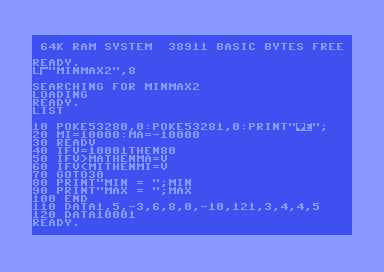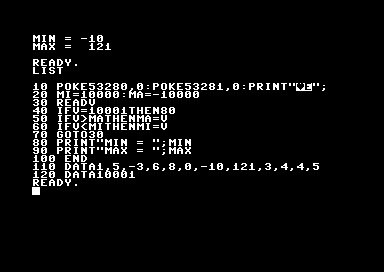Znajdź najmniejszą i największą liczbę! Ruby 3.2 YJIT WebAssembly. Warto też dopisać wersję języka i kompilatora/interpretera w którym dany program został skompilowany i uruchomiony.
# create a method that finds the minimum value passed into it
def find_min(*args) # allows me to pass in any amount of arguments
min_num = args[0]
args.each do |number|
if number < min_num
min_num = number
end
end
min_num
end
puts(find_min(1, 5, -3, 6, 8, 0, -10, 121, 3, 4, 4, 5))
# create a method that finds the maximum value passed into it
def find_max(*args) # allows me to pass in any amount of arguments
max_num = args[0]
args.each do |number|
if number > max_num
max_num = number
end
end
max_num
end
puts(find_max(1, 5, -3, 6, 8, 0, -10, 121, 3, 4, 4, 5))


